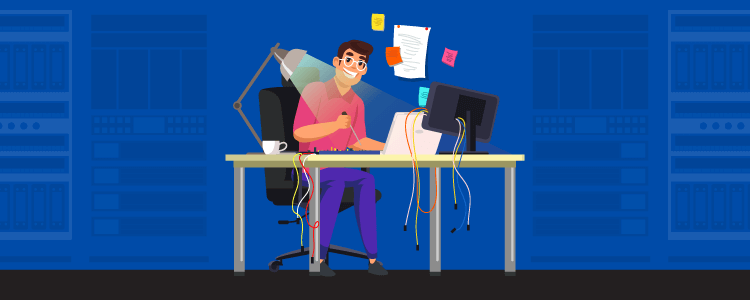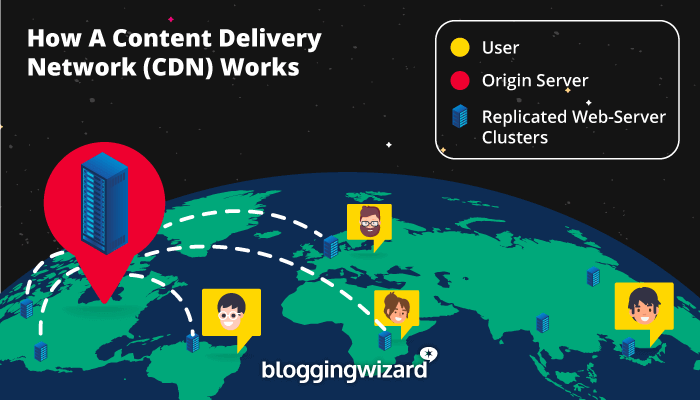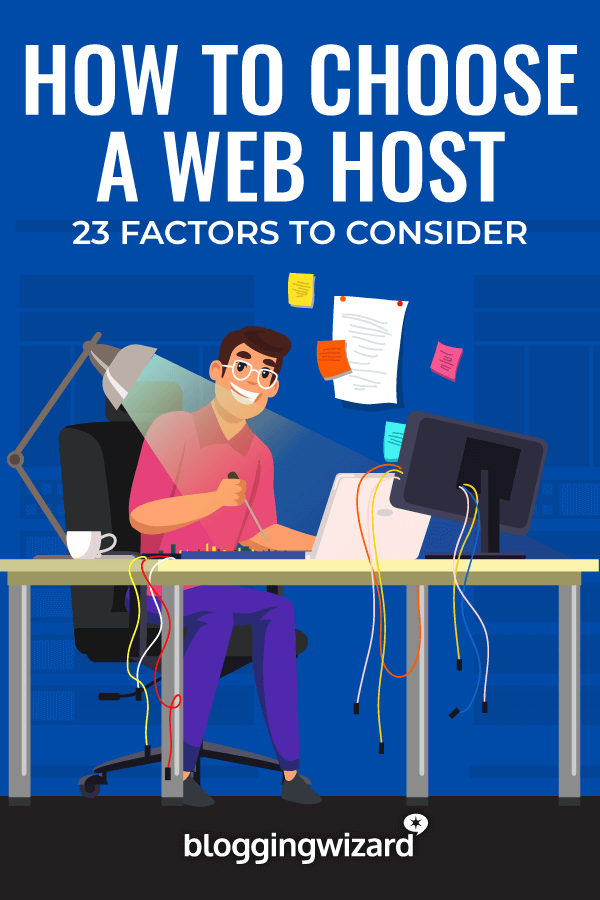How To Choose A Web Host: 23 Factors To Consider

Choosing a web host boils down to the three main “S” criteria – Speed, Security, and Support – each with their own set of factors.
And then there’s the cost.
Web hosting services come in all shapes and sizes, and vary in price from a few dollars to hundreds of dollars per month.
So how do you choose a web host?
In this post, we’ll examine 23 factors to help you choose a web host that meets your requirements.
23 Factors to consider when choosing a web host
To help you select your web host, we’ve divided these 23 factors into five sections:
- Performance (Speed)
- Security
- Support
- Pricing
- Optional Extras
Let’s get started.
Performance (Speed)
In this section, we’ll cover the performance factors to consider when choosing a web host. But when we talk about “performance,” ultimately, we mean “speed.” Because what we really want to know is how fast a host can load web pages and give users the best possible experience.
Visitors don’t hang around if a page takes too long to load because, let’s face it, there are thousands more to choose from. And it’s no surprise that a speedy site is one of Google’s ranking factors. So make sure you get these selection criteria right.
1. Server resources
One of the first things you’ll see in web host specifications is storage and bandwidth, sometimes referred to as the “number of visits.” Here are a few questions to ask yourself:
How much storage do you need? For example, a small one-page website does not require as much storage as an ecommerce store.
What type of storage is included? Look for web hosts who use Solid State Drive (SSD) storage as it’s significantly faster than the old-style ATA hard disk (HD) storage.
Is the storage or bandwidth limited or unlimited? For example, a small business site with a few visitors a day looking for service details and contact information is significantly different than a business streaming thousands of media files daily or an ecommerce store listing thousands of products.
Also, be sure to check the small print and customer reviews for web hosts who offer “unlimited” bandwidth and storage. Sometimes vendors advertise an unlimited service, but in reality, you might find your website is “throttled” or even shut down once you reach a threshold.
Are server resources shared or ring-fenced? Most shared hosting divides web server resources, including CPU, RAM, Storage, and Bandwidth, between hundreds of different websites. If one site gets greedy, it can consume a large portion of those resources and leave others fighting over the remainder. On the other hand, VPS and Dedicated Hosting ring-fence a specific amount of resources for each site, so you get a consistent level of performance.
2. Server technology
As well as server resources, it’s worth checking to make sure the web host is using the latest server technology, sometimes referred to as the “software stack.” Technology advances quickly, and you’ll want a web host that moves with the times instead of using out-dated tech. For example, Kinsta’s software stack includes Nginx, LXD containers, PHP 7.4, and MariaDB for lightning-fast speed.
3. Server location
One other server consideration is to check if a web host offers one or several server locations. For example, if your primary audience is based in Australia, then it makes sense to choose a data center located in Australia (or nearby like Singapore) so that your web pages load faster. If you can’t select a server location, then you’ll definitely need a Content Delivery Network (CDN) to speed up page loading.
4. CDN
As WPX Hosting puts it:
Using a CDN is like having a mini-server nearby to help load and run your website faster and more efficiently, even from the other side of the world!
For example, if your website is hosted in the USA, users based in America will experience faster loading times than users based in Australia because your content has to travel a lot further across the world.
But with a CDN, your content would already be sitting on a “mini-server” in Australia waiting to serve visitors located nearby with an equally fast experience.

So it’s definitely worth checking if a web host includes a CDN service or you have to source and manage your own.
5. Caching
You’ll always need caching in some form, either at the server level or with a plugin, as it helps your web pages load much faster and improves the overall user experience for your visitors.
Some web hosts include caching at the server level, which usually means you don’t need to add any more caching as everything is optimized for the best performance.
On the other hand, some hosts don’t include any caching, which means you’ll likely need to install a caching plugin. If that’s the case, then check if there are any restrictions on what you can install. For example, if you host with Kinsta, who includes caching at the server level, WP Rocket is the only caching plugin they allow.
6. Scalability
Scalability is an important factor if your website traffic is growing or fluctuating. You need to know how easily a web host can meet the demands of:
- Occasional traffic spikes
- Seasonal traffic trends (both up and down)
- Long-term traffic increases
For example, Cloudways allows you to allocate more server resources within a few minutes. Other hosts may provide no scalability at all.
Note: Cloud hosting can scale seamlessly and handle big traffic spikes. Usually, you only pay your web host more money for the time you need the additional resources. Also, if it’s long-term growth, there’s no need to move or rebuild the server as it can scale with you.
Security
When you’re checking a potential web host, take a look at the levels of security they provide, especially at the server level. For example, do they:
- Apply the latest OS patches on your server to avoid vulnerabilities.
- Install server level firewalls that filter out malicious traffic and hackers.
- Provide DDoS protection to mitigate any potential DDoS attacks.
- Have a data processing agreement that covers things like GDPR.
7. Malware scanning and removal
Will your host scan for malware? And remove it? Some web hosts, such as WPX, include this service at no extra cost. If your preferred web host doesn’t, then some additional tools and services, such as Sucuri or MalCare, will handle this, but they come at an extra cost.
8. Backups
Backups are important! And web hosts provide different levels of backup services. So you need to check:
- Does the web host back up your site?
- How often does the web host run scheduled backups; e.g. daily?
- How long does the web host retain your backup; e.g. 30 days?
- Can you access and download the backups to your computer?
- Can you run an instant on-demand backup and restore?
Note: We always recommend using a third-party WordPress backup solution no matter what backup service the web host offers.
9. SSL certificate support
Google recommends every website should now have a SSL certificate to provide a level of reassurance to your visitors and protect sensitive data such as passwords and credit card details.
So you need to check:
- Does the web host include and manage a free Let’s Encrypt SSL certificate?
- Do you need a standard (e.g. Let’s Encrypt) or specialized (e.g. Domain Validated, Wildcard, or Ecommerce) SSL certificate?
Support
So far, we’ve focused primarily on the hardware and software capabilities of a web host. But what are they like when it comes to support? Do they have the skills and resources to provide an excellent service?
10. Response time
Let’s not beat about the bush, you want to know how fast your issues will get picked up? Because if your website is down, you can’t afford to wait in a queue for the next support engineer. For example, WPX Hosting typically replies to all support calls on Live Chat in under 30 seconds.
11. Resolution time
Getting your call answered is the first step, but you also want to know how fast your issues will get resolved. For example, if you speak to someone on live chat, can they actually resolve a high-severity issue?
Some web hosts pass severe issues onto 2nd or 3rd level support that can take days to be resolved. Whereas web hosts like WPX and Kinsta have experienced support staff, who can respond and resolve issues quickly without passing them on.
12. Contact methods
Next, you’ll want to check how you can get in touch with support. The best web hosts offer a choice of contact methods, including live chat, telephone, email, and an online support ticket system.
13. Operating hours
Does the web host 24/7 support? For example, if your website goes down, the last thing you want to see is the, “We’ll be back tomorrow,” notification on their live chat widget.
Be careful with terminology here because some web hosts might say they offer 24/7 support when they really mean you can log issues 24/7, but they only operate 9am – 6pm PST.
14. Support level
When you’re assessing support options, you need to decide what level of support you require. You’ll need to consider server support, especially with VPS, Dedicated, and Cloud Hosting, plus application support, such as WordPress or WooCommerce.
For example, if you’re a solopreneur or small startup, you may not have the time, skills, or resources to cover any support, so you’ll want a fully-managed support offering. On the other hand, you might be self-sufficient or have a skilled in-house team that can handle support.
Liquid Web offers three levels of managed support on their hosting plans, so you can choose what you require:
- Fully-managed – Provides all the support and assistance you’ll need.
- Core-managed – Ideal if you only need a little help occasionally.
- Self-managed – Best-suited to larger firms with fully-trained IT staff.
Note: If you’re running WordPress and want the best level of support, opt for a WordPress Managed Hosting plan, such as those offered by WPX, Kinsta, SiteGround, or DreamHost.
15. Proactive support
As well as looking for a web host with excellent customer support, you should check if they provide proactive support services, such as:
- Self-healing technology to auto-start any PHP service that has stopped.
- Running database optimization to fine-tune your MySQL database.
- Applying the latest OS security patches to prevent hackers and malware threats.
- Scheduling and retaining daily backups to keep a safe working copy of your site.
- Applying the latest WordPress updates to keep the core application and/or themes and plugins secure.
In short, they proactively monitor and fix everything in the background before you even notice or think about it.
Pricing
When you’re assessing the prices of various web hosting plans, remember it has to be something that fits your budget. For example, if you’re a startup, finances might be tight, so choose a service that will scale as you grow.
As a ballpark, prices range from $5/month for shared, to $15/month for VPS, to $199/month for dedicated hosting. So look for a web host that offers the best value for your money.
16. Advertised price
One thing to be aware of is being seduced by extremely low first-year prices that suddenly jump up in price at renewal time. For example, shared hosting plans that start at $3.95/month for the first year and then renew at $11.95/month for subsequent years.
17. Real-world cost
You’ll also need to check for hidden extras as the price we think we’ll pay isn’t always the price we’ll actually pay. For example, web hosts such as WP Engine charge based on monthly unique visits but they reset what counts as a unique visit after 24 hours. As a result hosting costs can get extremely expensive with these types of companies.
18. Cancellation charges
Finally, always check the cancellation and refund policy. For example, if you buy an annual or multi-year hosting package, you may have to forfeit any refund if you leave early.
Optional extras
The last section deals with optional extras that not everyone requires, but still need to be considered.
19. Development functionality
If you need access for your developers, check if a web host provides things like Root Access, SSH, SFTP, WP-CLI, and a Staging area.
20. Operating system: Linux or Windows
Do you require a specific Operating System (OS) on your server? Most web hosts run on Linux, but with some services, you can specify if you want Windows, like Liquid Web’s Dedicated Hosting plan.
21. Email
Some web hosts include email, while others don’t. Email services vary as well because some web hosts include a webmail client, while others just forward emails to another email client.
22. Migration services
Do you need help migrating from an existing web host? Many web hosts now offer a free fully-managed migration service while others provide the software, and you have to run the migration yourself.
23. Domain
Many web hosts offer a package that includes domain registration. If you’re starting your first site, this can sound quite appealing. And on the surface, it seems sensible to get your hosting and domain together from one company.
But, if and when you decide to move to another web host in the future, it can be a little messy to separate the two. That’s why we recommend buying your domain separately, with a registrar like Namecheap, so you can switch hosts easily in the future.
Conclusion
Armed with these 23 factors, it’s time to choose your web host. Remember, you’ll want fast loading page speeds, tight server security, and knowledgeable support staff to help make your website a success.
Whether it’s shared, dedicated, cloud-based or managed hosting, weigh-up your options and decide which web host offers the best value for your money.
Disclosure: Our content is reader-supported. If you click on certain links we may make a commission.

